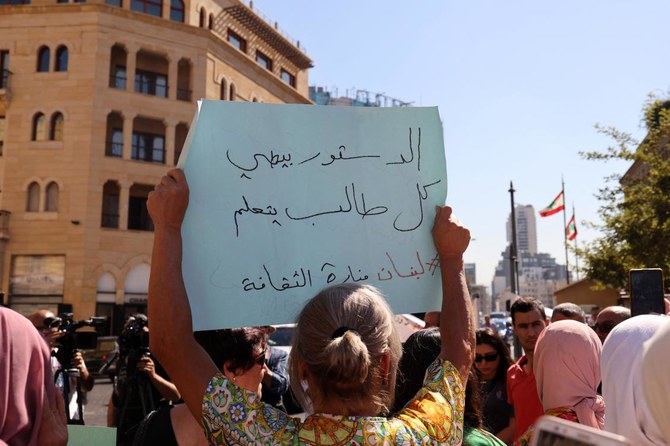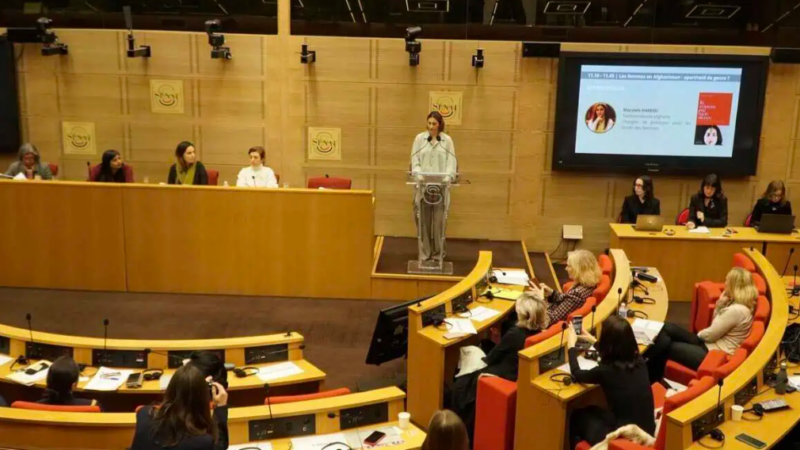Lebanese children ‘miss out’ on education as crisis takes toll

- Economic meltdown and social disintegration condemning young people to go without an education
- Teachers’ strikes and school closures force parents to pull children from school and send them to work
Lebanon’s economic meltdown and social disintegration is condemning a “lost generation” of young people to go without an education, experts warned on Friday.
Lack of funding for the school system has led to repeated teachers’ strikes and school closures, resulting in children being pulled out of the formal education system and in some cases being forced to work.
Since 2019, children have “experienced devastating disruption to their education,” according to the UNchildren’s agency UNICEF. The disruptions were attributed to the economic crisis, the coronavirus epidemic, the deadly 2020 Beirut port blast and strikes that forced school closures.
“A growing number of families can no longer afford the cost of education, including transport to school, food, textbooks, stationery, and clothes,” UNICEF Lebanon said.
At least 15 percent of households have pulled their children out of school, UNICEF said, up from 10 percent a year ago. And one in 10 families have been forced to send children, sometimes as young as 6 years old, to work to make ends meet.
Lebanon’s public institutions have been crumbling since the economy collapsed in late 2019, pushing most of the population into poverty and dealing a heavy blow to state schools.
Public sector workers including teachers have repeatedly gone on strike as the value of their salaries crashed after the Lebanese pound lost more than 98 percent of its worth against the dollar.
“My children stayed at home for three months last year due to the strikes,” said Rana Hariri, 51, a mother in Beirut. She had hopes that her 14-year-old daughter Menna would become a doctor. “But now I just hope she’ll be able to go to school in the first place.”
The school year begins in early October but amid uncertainty over the start date, her two sons, aged 13 and 17, have taken up work with their father, a plumber. Her two daughters, Menna and sister Aya, 9 have been forced to wait at home. “I want them to have a degree … but this country is killing their future,” their mothersaid.
Education Minister Abbas Halabi has repeatedly complained of funding problems, and warned this month: “Public education is in danger. The most urgent problem today is financial.”
The education ministry has slashed the number of teaching days from 180 in 2016 to about 60 in the past two years because of “financial constraints,” according to Human Rights Watch. The ministry had “no plan”to secure the funds needed for schools to remain open without interruption, the rights group’s Lebanon researcher Ramzi Kaiss said. “If we’re going to have a fifth year that is lost or interrupted, it’s going to be catastrophic.”






